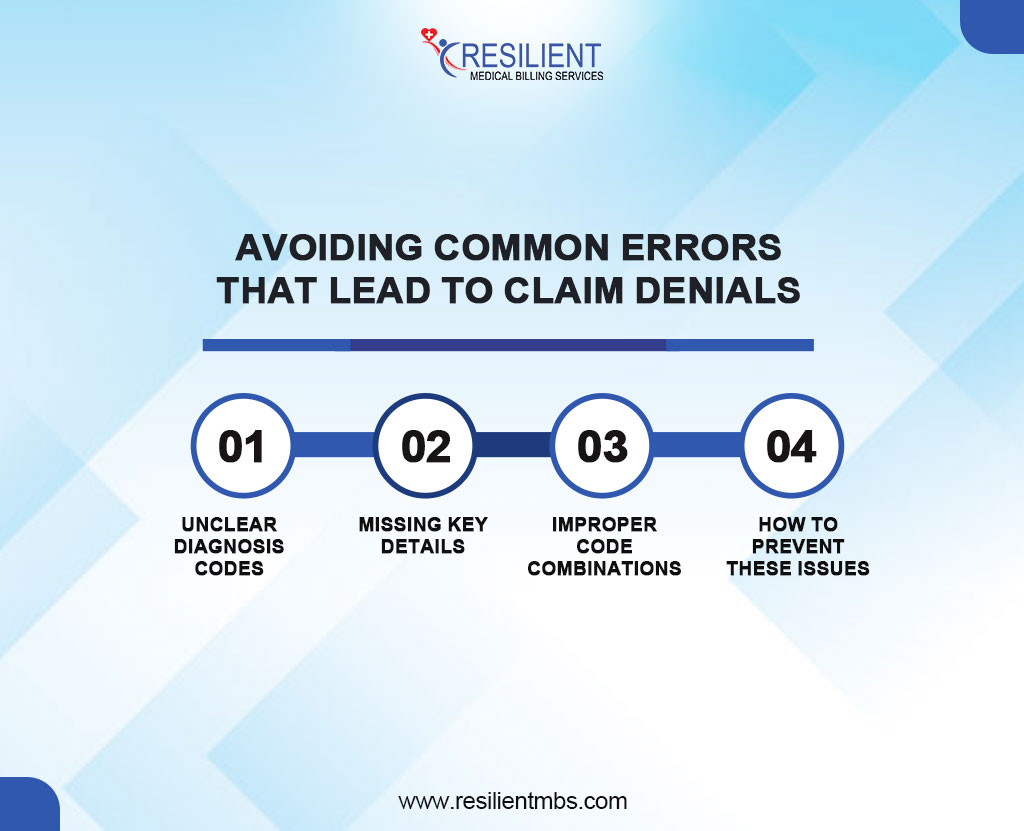Weight loss counseling is more than a supportive conversation; it’s a vital component of preventive healthcare. With over 41.9% of U.S. adults classified as obese (CDC, 2023), the need for structured guidance has never been greater. Obesity significantly increases the risk of chronic conditions such as type 2 diabetes (risk increased by up to 7 times), hypertension, and cardiovascular diseases, driving up long-term healthcare costs.
By promoting healthier lifestyle habits, providers can help patients manage their weight more effectively, leading to improved outcomes and reduced medical expenses. Studies show that even a 5–10% reduction in body weight can lead to meaningful improvements in blood pressure, cholesterol, and blood sugar levels.
However, effective care must be paired with accurate documentation. This is where ICD-10 identification is very important.
Using the correct ICD-10 code for obesity or weight loss counseling not only supports proper recordkeeping but also ensures appropriate reimbursement.
For providers, it’s an essential step in delivering compliant, patient-centered care while handling the complex world of medical billing.
What is the ICD-10 Code for Weight Loss Counseling?
When providing weight loss or dietary counseling, the most commonly used ICD-10 code is Z71.3 – Dietary counseling and surveillance. This code is used when the primary service provided is nutritional guidance, including counseling aimed at weight loss and overall dietary improvement.
Other related ICD-10 codes include:
- Z71.3 – Dietary counseling and surveillance: Applied when a patient receives counseling without an accompanying medical diagnosis necessitating it.
- Z68.3–Z68.45 – Body Mass Index (BMI) codes: These are often used in conjunction with Z71.3 to indicate the patient’s current weight status.
- E66.9 – Obesity, unspecified: Used as a diagnosis code to indicate obesity when counseling is provided as part of treatment.
It is important to distinguish between diagnosis codes and service codes in this context. ICD-10 codes like Z71.3 describe the reason for the service, while Current Procedural Terminology (CPT) codes describe the type of service provided, such as a nutritional consultation or behavioral counseling session. Both coding systems work together to form a complete picture of the patient encounter.
Overall, precise use of the ICD-10 code for weight loss counselling guarantees adequate documentation, reimbursement, and integration into patient care plans. This helps clinical and administrative processes and promotes preventive care for chronic illnesses.
Counseling for Obesity and Weight Loss ICD 10 Code Explained
Proper documentation of obesity-related counseling is essential for both clinical clarity and accurate reimbursement. When healthcare providers offer counseling to address obesity or assist with weight reduction strategies, it must be supported with the correct diagnostic and procedural coding.
The E66 series of ICD-10 codes is used to classify various types of obesity, including:
- E66.01 – Morbid (severe) obesity due to excess calories
- E66.3 – Overweight
- E66.9 – Obesity, unspecified
When a provider offers counseling specifically for obesity or weight reduction, the counseling session itself should be separately coded using Z71.3 – Dietary counseling and surveillance. This distinguishes the therapeutic interaction from the obesity diagnosis alone.
Importantly, both the diagnosis code (e.g., E66.01) and the counseling code (Z71.3) should be used together when applicable. This dual coding approach supports medical necessity and provides a full picture of the services rendered during the encounter.
ICD-10 for Weight Loss vs. Weight Management
Healthcare professionals often encounter scenarios that require distinguishing between weight loss efforts and long-term weight management. Each of these clinical intentions is coded differently under ICD-10.
Weight Loss ICD-10 Codes are generally used when patients are actively trying to reduce body weight due to obesity or overweight status.
Commonly used codes include:
- E66.9 – Obesity, unspecified
- Z71.3 – Dietary counseling and surveillance
ICD-10 Code for weight management, on the other hand, may apply when the goal is to maintain the current weight or manage nutritional intake over time. Depending on the context, codes such as:
- Z71.3 – for ongoing dietary monitoring
- Z72.4 – Inappropriate diet and eating habits
Diet Counseling ICD-10 and CPT for Weight Loss Counseling
The ICD-10 code Z71.3 plays a central role in documenting diet counseling and weight loss services. It is used to indicate that a patient received structured guidance regarding nutrition, diet changes, or calorie reduction, irrespective of a specific underlying disease.
To ensure reimbursement for such services, pairing Z71.3 with the correct Current Procedural Terminology (CPT) or HCPCS codes is necessary.
Common CPT/HCPCS Codes Include:
- 99401–99404: Preventive medicine counseling (individual sessions)
- 99401: 15 minutes
- 99402: 30 minutes
- 99403: 45 minutes
- 99404: 60 minutes
- G0447: Face-to-face behavioral counseling for obesity, 15 minutes (Medicare-specific)
Tips for Accurate Billing
- Use Z71.3 as a supporting diagnosis when counseling is the primary service.
- Always document the duration and nature of the counseling session.
- When counseling is related to a condition like obesity (E66), include both the diagnosis and Z71.3.
- G0447 is only billable for Medicare patients who meet specific BMI thresholds and receive services from approved providers.
- Pairing ICD-10 and CPT codes correctly not only improves reimbursement rates but also demonstrates compliance with payer guidelines and promotes holistic patient care.
Accurate Documentation for Reimbursement in Obesity Counseling
Clear and thorough clinical documentation is essential for securing reimbursement and delivering quality care, especially for obesity and weight counseling services. It helps justify medical necessity, meet payer requirements, and reduce claim denials.
To support proper coding and billing, providers should document key details such as BMI, comorbidities, patient goals, and lifestyle counseling. Accurate records enable correct use of ICD-10 codes (e.g., E66 series for obesity) and CPT codes (99401–99404 for preventive counseling)
Coding Tips for Obesity and Weight Counseling Services
When billing for counseling related to obesity and weight management, the following tips can enhance accuracy and reduce the risk of denials:
- Use diagnosis codes such as E66.9 for unspecified obesity or E66.01 for morbid obesity due to excess calories.
- Pair ICD-10 codes with appropriate counseling CPT codes, like Z71.3 for dietary surveillance and counseling, when lifestyle modification is the primary focus.
- When applicable, include Z68.XX codes to document BMI measurements, which further substantiate medical necessity.
- Ensure time spent on counseling is noted, as many CPT codes for preventive services are time-based.
Avoiding Common Errors That Lead to Claim Denials
Some common problems in invoicing and documentation can make it harder to get a claim approved:
Unclear Diagnosis Codes: Using broad or unspecified codes (like E66 without further detail) often results in rejections.
Missing Key Details: Failing to include the reason for counseling, time spent, or specific interventions can make documentation insufficient.
Improper Code Combinations: Pairing the wrong diagnosis with CPT codes or using preventive codes without supporting risk factors may trigger audits or denials.

How to Prevent These Issues:
Perform regular coding reviews, ensure staff are trained on the latest billing standards, and use EHR systems with prompts to support complete, compliant documentation.
Concluding Words
Precise coding and comprehensive documentation are vital for effective obesity counseling and reliable reimbursement. By using correct ICD-10 and CPT codes and staying aligned with CMS updates, providers can reduce claim denials and ensure compliance.
Collaborating with certified coders enhances accuracy, streamlines workflows, and supports better patient care.
For expert guidance in optimizing your coding, documentation, and billing practices, partner with Resilient MBS, your dedicated ally in accurate, compliant, and efficient medical billing solutions.










